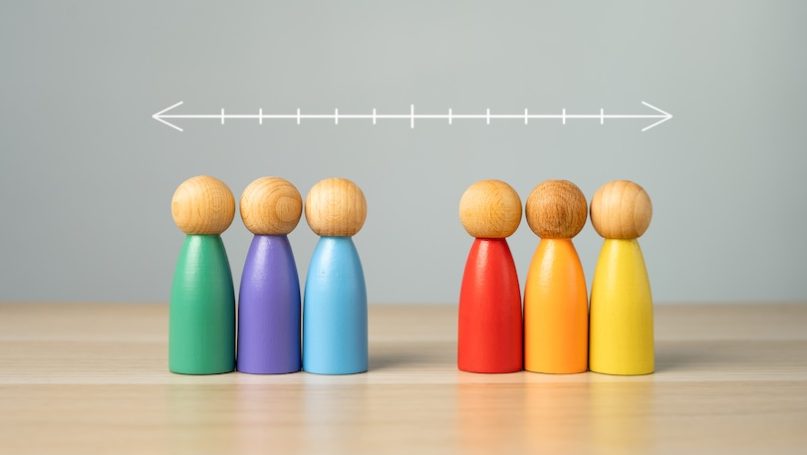
In the last few decades, cultural politics has come back to the centre stage of democracy. The return of culture and democratic backsliding have been somewhat simultaneous and interrelated processes. The ‘cultural turn’ has made democracies look increasingly illiberal, and the only alternative that those opposed to illiberality find is in the language of institutions and constitutions. The problem with this mode of response is it does not sufficiently understand why there is a return to culture and if institutional imagination can adequately address the seduction of culture. We need to begin by asking why democracy and culture are at loggerheads in order to understand what could be an effective response to it without attempting to displace the cultural identification of the majority and without it becoming majoritarian.
John Keane argues democracy needs us to live ‘openly and flexibly’, and that ‘democracy is the friend of contingency’. Democracy promotes indeterminacy and ‘denatures power’ by countering all claims to privilege based on colour, race and religion, among other such identities. Democracy sees nothing as permanent and it ‘tears up certainties’. The ideal of equality necessarily brings diversified groups together and a clash of ideas to learn and unlearn. It is a continuous process of discovery.
At the turn of the century, democracies inaugurated greater spaces to market. Slavoj Zizek argues that market-driven capitalism is less of a top-down hegemony and is more of a bottom-up process driven by desire. But desire is also driven by desiring for desire itself and therefore the more desires get fulfilled the more melancholia and nostalgia we experience. Desire is also, like democracy, a never-ending process that robs us of contentment. Consumption therefore becomes a self-propelling and self-serving habit that takes us close to what Herbert Marcuse refers to as the phenomenon of ‘one-dimensional man’.
Even as democracy and markets inaugurate newer avenues they demand constant innovation and change. Democracies need constant refashioning of self and markets spread unsettling technological changes. It is this dimension of the restless pursuit of transformation that culture provides a soothing sense of belonging. Culture is marked by solidarity and familiarity. It promises fraternity and love. Culture is rooted and local; it is vernacular and closer to our emotional make.
David Goodhart argues that the current populist moment in democracies is marked by a conflict between ‘anywheres’ and ‘somewheres’. ‘Anywheres’ are a small cosmopolitan elite, while somewheres are large swathes of territorially located provincial cultural groups. Goodhart notes that even in advanced capitalist democracies like Britain majority of the population (over 60 per cent) prefer to live within 20 miles of the radius of where they were born and brought up. They wish to continue to live in familiar lifeworlds and not challenge themselves with hyper-cosmopolitan and urbanized settings. People migrate to urban settings more in search of economic opportunities than a choice.
In the Indian context, Ambedkar noted this point of cultural unity in peninsular India and therefore wonders how steep caste differences continue alongside such cultural unity. Populists’ reference to civilizational discourse resonates because of the sense of belonging it offers – the sense of assurance and surety that democracy and the market thrive on unsettling. Culture perpetuates prejudice and discrimination but not all of culture is about conservatism. Modernity in its speed to achieve equality and fight discrimination dumped all of culture to the backwaters of history. This is where the return of culture is taking a devious turn to illiberality and authoritarianism.
The return of culture in democracies also signifies the success of political democracies. It is the achievement of social democratization that has allowed differentiated social groups to express themselves. It is this expression of hitherto marginalized social groups that brings culture to the centre stage. It is a turn to mass culture that is also silently questioning the elitism in democracies. Cultural rhetoric has served to question elite interests through illiberal registers.
The celebrated movie of Wayne Blair titled Septembers of Shiraz delicately and effectively depicts how the Iranian revolution of 1979 was a theocratic state in the making but it got social consent as it managed to delegitimise the elites and their overreach. It is this moment of becoming that attracted Michel Foucault who typified the Iranian revolution as marked by ‘political spirituality’. It is a different matter that that moment got domesticated into an illiberal theocratic state.
The return of the culture to the centre stage needs to be seen as constitutive of democracies and not an aberration. We would certainly need the language of institutions, constitutions and rights but not as a response to the centrality of culture or much less to displace it. The question is how we pursue constitutional morality alongside a cultural sense of belonging. How do we maintain a deeper sense of continuity and memory in our struggles for greater equality? What we need is culturally rooted democracies and culturally contained markets. It is within this equation we should be also able to open up spaces to question practices of prejudice and discrimination internal to all cultures.
We do not have a blueprint but restoring culture to its place might be a good beginning to make and renew our understanding that not all of culture is socially conservative and does not necessarily politically tilt towards the right.
Further Reading on E-International Relations
- Existential Battles: Culture Wars and Real Wars
- Away from Political Parties into Lifestyle Politics: Young People in Advanced Democracies
- Reason, Cause, and Cultural Arrogance
- The Art of Diplomacy: Museums and Soft Power
- Hatred and Fear: Bolsonaro and the Return of Irrational Politics
- Opinion – Digital Disinformation, Civic Disengagement and the Future of Democracy